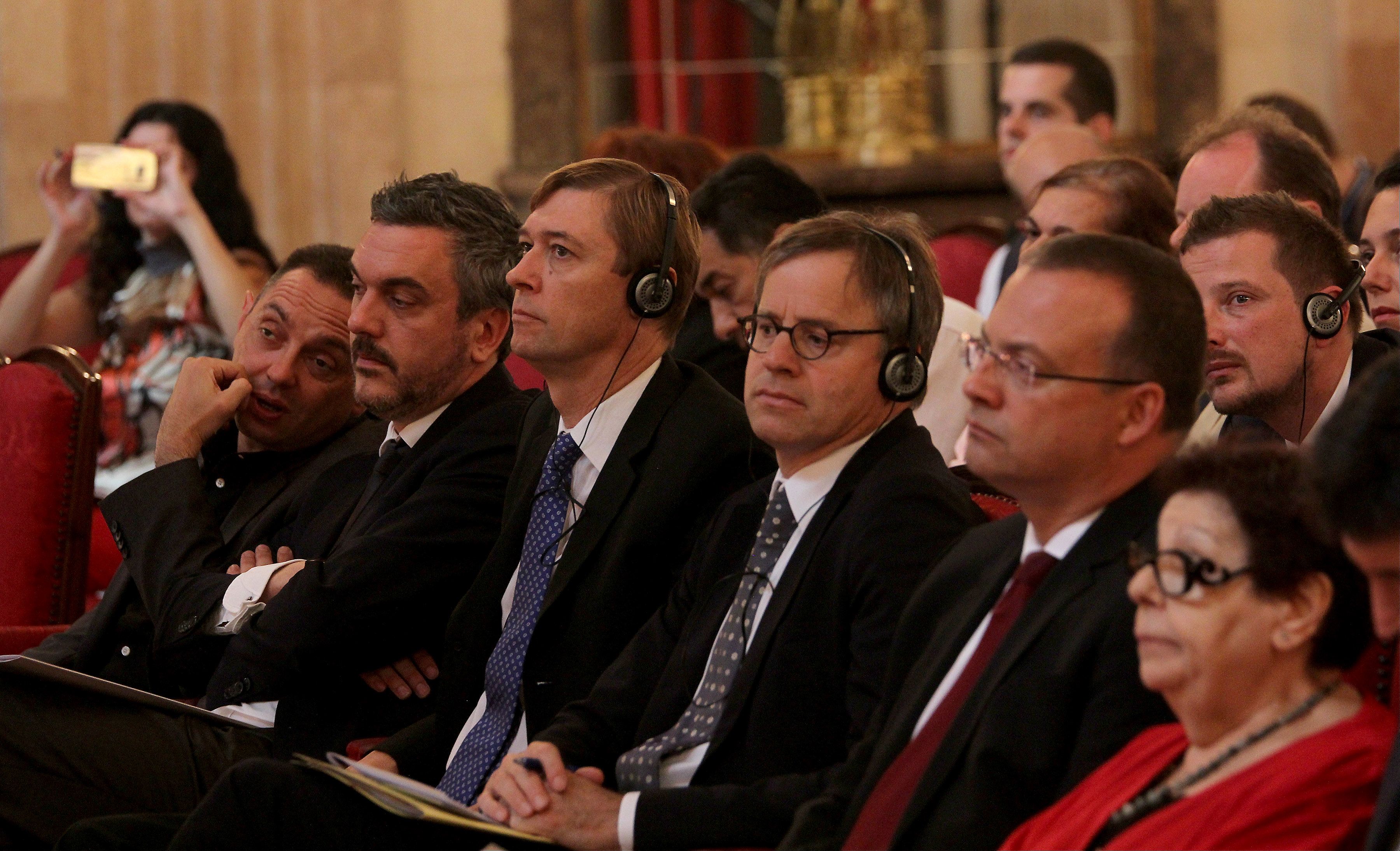Deputy Head of the EU Delegation to Serbia Oscar Benedikt said migrants hailing from Serbia had practically zero chance of staying in EU Member States and would “one way or the other” be returned to Serbia, noting that once returned, the key would be securing their integration in the society.
Addressing the Third Belgrade Dialogues titled “Back and Forth – Migration Incentives and Sustainable Integration in Serbia” held at Belgrade City Hall, Benedikt said the EU was very focused on the issue of migration. He pointed to two aspects of this issue – one being migration from areas ravaged by war and the other – asylum seekers coming from Serbia.
“Those coming from Serbia have practically zero chance of staying and will be returned to Serbia one way or the other,” Benedikt told the press.
He said the EU looked into how Serbia dealt with returnees and their integration, noting that the Union supported Serbia in these efforts by donating EUR11.5 million for a project aimed at integration of vulnerable Roma and allocated additional EUR20 million for such purposes.
According to him, the Roma integration is primarily focused on education and employment and Serbia was expected to soon adopt an Action Plan, as a very important part of Chapter 23.
The solution to economic migration is the creation of better living conditions in the country, that is what we are talking about and the goal of our common work, Benedikt said.
German Ambassador Axel Dittmann said the question was what could be done to reintegrate people who got back from EU countries, on the one hand, and what could be done to make people stay in the country and discourage them from migrating, on the other.
According to him, Germany and the EU are particularly focused on resolving the issue of Roma in Serbia.
When it comes to the EU considering charging entrance fee to Schengen area, Dittmann said there indeed was a discussion about this in the EU, adding that in times of growing security challenges it was necessary to keep track of who entered the Schengen area.
“The Schengen area is very important to us and the EU is strongly committed to strengthening the external Schengen borders. On the other hand, we are also committed to reforming and strengthening the Dublin system,” Dittmann said.




